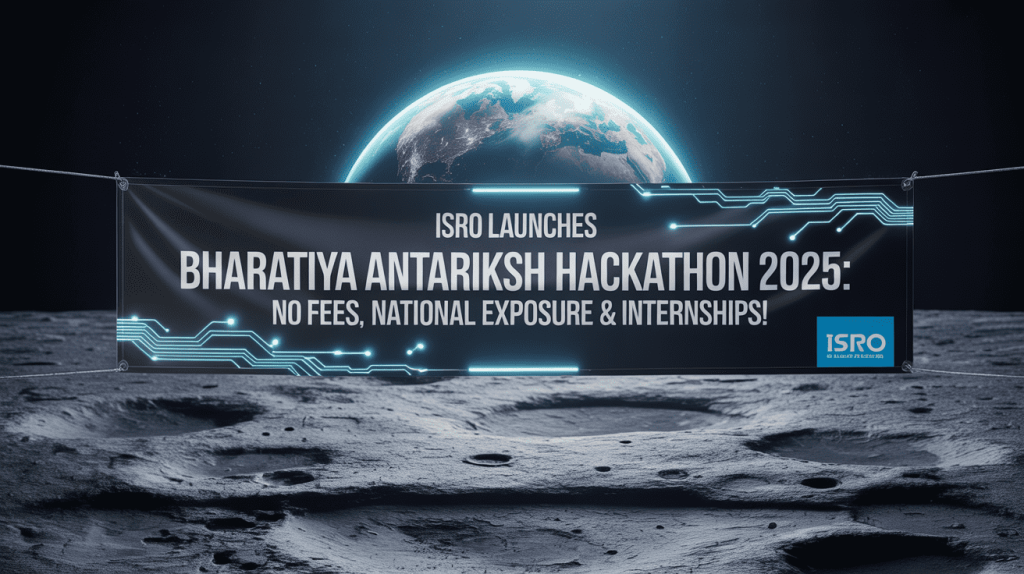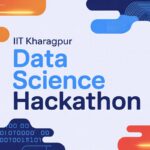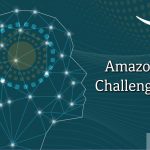
The Bharatiya Antariksh Hackathon 2025 (BAH 2025) is a premier nationwide innovation challenge initiated by the Indian Space Research Organisation (ISRO) in collaboration with Hack2Skill. Following the success of its first edition, the second edition was launched on June 18, 2025, with a vision to encourage young minds in addressing critical challenges in space research through technology and innovation. The event will culminate in a 30-hour Grand Finale to be held on 7th and 8th August 2025 at NRSC, JD Metla Campus, Hyderabad.
Participation is open to students from across India who meet the following criteria:
Participants can belong to different institutions but must form a team within the allowed size limit.
Follow these steps to register and submit your solution:
Tackle real-world problems in space tech, AI/ML, and geospatial science. Choose from 14 cutting-edge challenges designed by ISRO:
1. Forest Fire Spread Simulation
Use AI/ML techniques to model and simulate the dynamic behavior of forest fires for early detection and disaster response.
2. AI-Based Help Bot
Develop an intelligent help assistant for dynamic information retrieval using a knowledge graph from static/dynamic web content.
3. Satellite-based Air Pollution Monitoring
Integrate satellite observations, ground data, reanalysis datasets, and AI/ML to monitor and analyze air quality trends.
4. LLM for Spatial Intelligence
Design a chain-of-thought based Large Language Model (LLM) system to automate complex geospatial analyses.
5. Cloud Motion Prediction
Apply diffusion models on INSAT-3DR/3DS imagery to predict cloud movements with precision.
6. Automated Feature & Change Detection
Use AI/ML to detect changes in glacial lakes, roadways, and drainage systems via multi-source satellite imagery.
7. Air Quality Visualizer & Forecasting App
Build an application providing granular, real-time, and predictive air quality insights for underserved regions.
8. Deep Learning Optimization in EO
Propose novel methods to handle imbalanced datasets in Earth Observation for improving deep learning outcomes.
9. Tropical Cloud Cluster Identification
Develop an ML algorithm to detect and classify tropical cloud formations using half-hourly INSAT satellite data.
10. Halo CME Detection with Aditya-L1
Identify Coronal Mass Ejection (CME) events using particle data from the SWIS-ASPEX payload aboard Aditya-L1.
11. Lunar Landslide & Boulder Detection
Create a technique to detect landslides and boulders on the Moon using imagery from Chandrayaan missions.
12. Satellite Image Super Resolution
Enhance optical satellite imagery resolution using dual-image super-resolution and blind evaluation methods.
13. Lunar DEM Generation
Generate high-resolution Digital Elevation Models (DEMs) of the lunar surface using Shape-from-Shading techniques.
14. Change Detection & Alert System
Develop a robust multi-temporal analysis system using LISS-4 imagery for user-defined areas of interest (AOI).
Q1: Who can participate in the hackathon?
Only students pursuing UG, PG, or PhD programs in India.
Q2: What is the registration fee?
There is no fee at any stage of the hackathon.
Q3: Can members be from different colleges?
Yes, cross-institute collaboration is allowed.
Q4: Is prior space research experience mandatory?
No. Only creativity, passion, and problem-solving skills are required.
Q5: Will ISRO scientists guide us?
Yes, participants will be mentored by ISRO professionals during the development process.

Content Strategist & Career Researcher
Haris is a Content Strategist and Career Researcher at Talentd, specializing in job market trends, career development, and placement preparation. With years of experience guiding students and professionals from Tier 2 and Tier 3 cities, he crafts practical, research-backed content that helps users succeed in competitive hiring landscapes.

The Kharagpur Data Science Hackathon (KDSH) 2026 is one of India’s most prestigious student-focused data science competitions, hosted by the Kharagpur Data Analytics Group, IIT Kharagpur, in collaboration with Kshitij, Asia’s largest techno-management festival. Now in its 6th edition, this hackathon offers participants a national platform to solve real-world analytical challenges, compete with top talent, […]

Flipkart has officially opened registrations for the latest edition of its flagship women-focused tech initiative, Girls Wanna Code 7.0. This nationwide program is designed to empower women engineering students by providing early industry exposure, structured learning, mentorship, and a direct pathway to internships with Flipkart. If you are a woman engineering student graduating in 2028 […]

The Amazon Machine Learning Challenge 2025 is back with another exciting edition, offering students across India a chance to work on real-world datasets and solve industry-level problems. This national-level hackathon not only provides an opportunity to showcase your ML skills but also opens the doors to Pre-Placement Interviews (PPIs) with Amazon. If you are planning […]